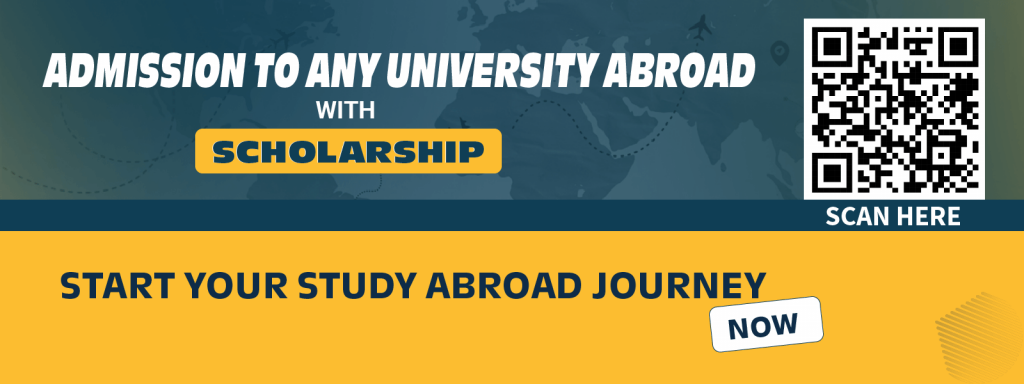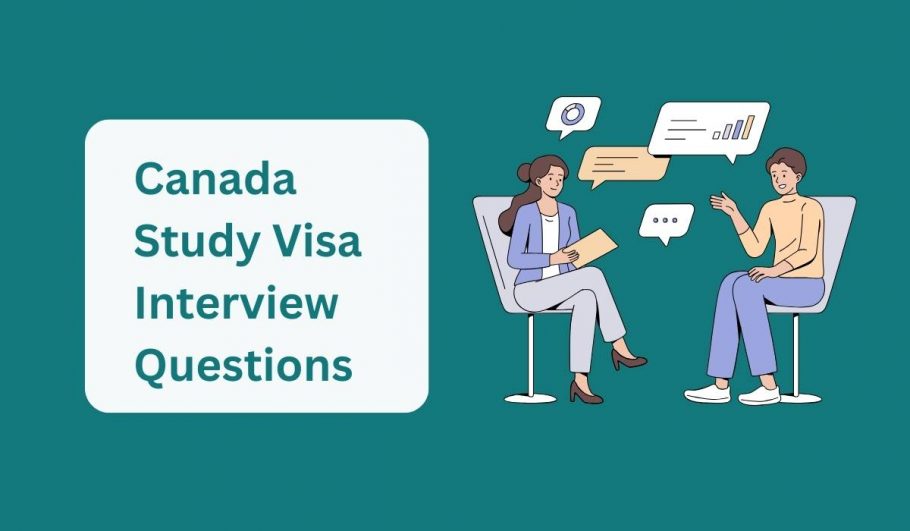Many global college students have the purpose of studying in Canada, however before you can start this exciting journey, you’ll possibly need to ace your study visa interview. The interview degree of the visa application method is crucial because it offers the visa officer a chance to assess your motivations, suitability, and stage of readiness for reading in Canada.
Here are a few typical questions you might be requested at your interview for a visa to Canada, alongside advice on a way to respond to them, to help you get geared up.
- How are you doing?
When the student walks into the hallway, this may be the first question they are asked. Making sure the candidate is at ease and assisting them in becoming less anxious for the interview is the purpose of the question. It doesn’t matter if your response could be better; they start grading your string as soon as you walk into the room, so be careful to be precise and brief.
- Have you been to Canada before?
It should be as easy as yes or no to respond. If the response is in the affirmative, you will need to provide the duration of your visit, along with the reason for going and the reason for not going.
- Why Canada?
Interviewers frequently inquire about the students’ motivations for selecting Canada. Make sure your work is as original and thoroughly researched as you can. You must know more about Canada and the university you are applying to answer this question. You must clearly state why you feel that a Canadian university is a better option for you than one in your own nation. Here, one can discuss the instructors and the caliber of instruction.
- Why are you choosing this particular university?
This question should have a specific and pertinent response. To respond to this question, make sure you are aware of the course’s characteristics as well as the advantages of graduating from that specific college or university. You can also bring up the college’s ranking in any foreign periodicals and journals. If the university provides any exclusive electives, you can also list them.
- Which program are you joining?
It is required to study the program booklet, and when this question is posed, key details like the program’s start and conclusion dates should be mentioned. It is important to make clear the curriculum of the program and how it will assist you in progress in your job. It is important to explain your particular reasoning for selecting the program in advance to avoid needless pauses and protracted answers.
- Are there any faculty members at your college or in the program you are enrolling in that you know?
Yes or no must also be used to begin this question. If the response is in the affirmative, you must disclose the name, relationship, and source of your knowledge about the professor. If the response is negative, you can state that you have studied the faculties and are well aware of the unique qualities that set your college’s faculties apart.
- Are there any friends or family you have got in Canada?
No, presently, I haven’t any pals or circle of relatives in Canada. But I’m excited to meet new humans and integrate into Canadian society.
- Did you get any scholarships?
If so, please state the name of the scholarship. You must also discuss the amount of the scholarship that you have been awarded. In the interview, it is necessary to mention any non-monetary benefits that may come with receiving the scholarship. Ensure you let them know you are working hard to obtain a scholarship if you haven’t earned any.

- Are there any other tests that you have appeared for?
The language tests and any other entrance exams you passed to apply for admission to a college or university are discussed in this question. The interviewer must be informed of the tests taken and the results. the results of language assessments such as the TOEFL, IELTS, OET, and others, as well as the GMAT or GRE scores. Make sure you let them know that you are waiting on the results if you haven’t received them yet.
- Who will cover the study costs?
This is where you must disclose the source of funding for both your program fees and living expenses. It’s important to be explicit about the school loan details and whether parents give financial support. Avoid trying to pass off unnecessary information or bluffing because the application may only be accepted if the answers match the documents that will be carefully reviewed.
- Where will you be staying in Canada?
At this point, information about the specifics of the lodgings must be shared. Regardless of whether you are staying with family or friends or in accommodation provided by your college, this should be discussed.
- How are you going to manage the workload at college and the cultural variations in Canada?
By properly managing my time, soliciting assistance whilst necessary, and being organized, I am equipped to tackle the academic workload in Canada. I am also keen to learn from my instructors and peers, and I am open-minded and sensitive to cultural variations.
- What are your plans for your free time in Canada?
I intend to participate in extracurricular activities on campus, explore the local culture and attractions, and perhaps tour various regions of Canada to experience the varied cultures and landscapes in my spare time here.
- During your education, how do you plan to contribute to the Canadian community?
Throughout my training, I want to give back to the Canadian community by working for neighborhood groups, participating in social activities, and introducing people to my culture and stories. These activities, in my view, will enhance the community and my Canadian experience.
- What is the occupation of your mother and father?
A thorough synopsis of your mother’s and father’s respective vocations will be included in the response. Verifying their financial stability and ability to support you financially is the purpose of this query.
- Where do you live in the country?
This is where you have to provide your home’s specific address. Mention how much you will miss your home nation and how you plan to return soon following the training. If they inquire, you might also let them know about the extent of the degree in your native nation.
- Where did you study in India?
It is possible to discuss the educational background here. Information about your prior education and college can be displayed. Some clues to the solution you can provide include the degree name, length of study, and location in India.
- While studying in Canada, how will you maintain your connections to your home country?
While studying in Canada, I intend to maintain my connections to my country by communicating with my circle of relatives and friends regularly, participating in cultural events and get-togethers, and even joining agencies that assist cross-cultural exchange.
Conclusion
For your application procedure to go as smoothly as possible, you need to prepare for your interview for a student visa to Canada. Prepare your responses to these inquiries and be prepared to share comprehensive information about your educational heritage, take a look at the agenda, and monetary state of affairs.
FAQs
What paperwork is required for an interview for a student visa to Canada?
Your passport, a letter of acceptance from a Canadian university, proof of your ability to pay your tuition, and every other paper the visa workplace requests are normally required.
How can I prepare for an interview for a study visa to Canada?
Review your application and any accompanying substances, familiarize yourself with the program and enterprise of your preference, and be ready to speak about your intentions for the time you’ll be spending in Canada.
What types of questions may I anticipate in an interview for a study visa to Canada?
You may be asked about your academic history, motivations for reading in Canada, as well as your future desires.
When a person asks me why I attended a particular Canadian college, how do I respond?
Give an honest and exact rationalization of your choice of the university, stressing its status, scope of applications, and compatibility along with your instructional and expert objectives.
During the interview, what do I do if I do not know the answer to a question?
It’s suitable to seek clarification or to pause and acquire your thoughts before answering. If you’re uncertain of the reaction, be forthright.
In the interview, how can I display my ties to my home country?
Talking about your circle of relatives, destiny employment, belongings ownership, or some other ties that indicate you wish to return after your research will assist you set up ties.
After the interview, what should I do if my visa application is rejected?
If your application is rejected, you have the option to reapply with further assistance with paperwork or see an immigration lawyer or consultant to research your rights.





